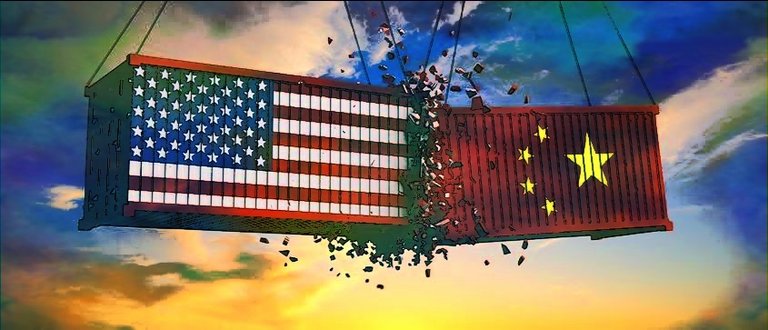China Announces 34% Tariff on All U.S. Goods & the Fall Back of Bitcoin

On April 4, 2025, China announced that it will impose a 34% tariff on all imports from the United States, effective April 10.
This move is in response to U.S. President Donald Trump's recent introduction of a 34% tariff on Chinese goods, which adds to previous tariffs, potentially raising the total tariff rate on Chinese imports to over 54%.
China's State Council Tariff Commission criticized the U.S. actions, stating they violate international trade regulations and exemplify unilateral coercion.
This escalation in trade tensions between the two largest economies in the world is expected to significantly impact bilateral relations and global trade dynamics.
In addition to tariffs, China has also imposed export controls on rare earth elements crucial for high-tech products and suspended chicken imports from certain U.S. suppliers.
The announcement of China's retaliatory tariffs led to a decline in Bitcoin's price, which fell back to around $83,000.
This drop reflects increased uncertainty and risk sentiment in global markets following the escalation of trade tensions.
Despite the decline, Bitcoin's drop was limited, possibly due to the market having already anticipated significant trade tensions.
Other cryptocurrencies like XRP, ETH, and SOL also experienced a reversal of early gains.
The overall sentiment in the cryptocurrency market remains cautious, with investors closely watching developments in the global trade landscape.
Tariffs will raise the cost of imported goods, potentially leading to higher consumer prices and reduced demand for affected products.
The tariffs could slow economic growth and lead to job losses in sectors heavily reliant on international trade.
Other countries, like the EU, are likely to retaliate with their own tariffs or trade measures, further complicating global trade.
The tariffs may prompt countries to form new trade alliances, excluding the U.S., such as potential collaborations between South Korea, Japan, and China.
It will force exporters to seek new markets, potentially intensifying competition in regions like Europe.
These tariffs signal a significant shift towards protectionism and are likely to reshape global trade relations, leading to increased uncertainty and potential economic instability.
It's me, @justmythoughts, an ordinary Hive user looking to make the most of the platform. I will appreciate your support. Follow me for more. Thanks, Gracias :)
https://www.reddit.com/r/worldnews/comments/1js0ddj/china_announces_34_tariff_on_all_us_goods/
The rewards earned on this comment will go directly to the people( @loading ) sharing the post on Reddit as long as they are registered with @poshtoken. Sign up at https://hiveposh.com. Otherwise, rewards go to the author of the blog post.